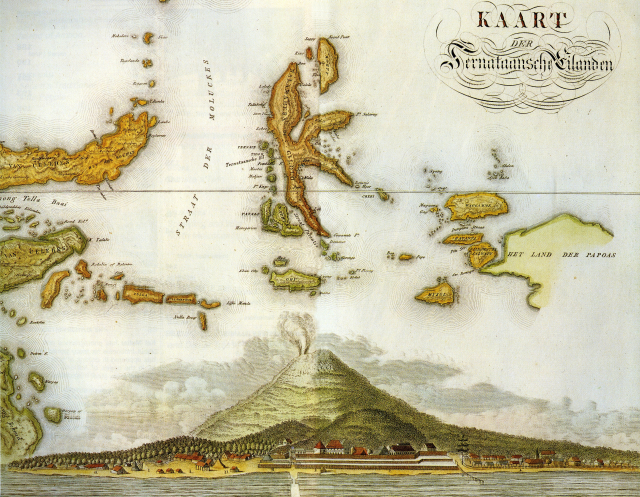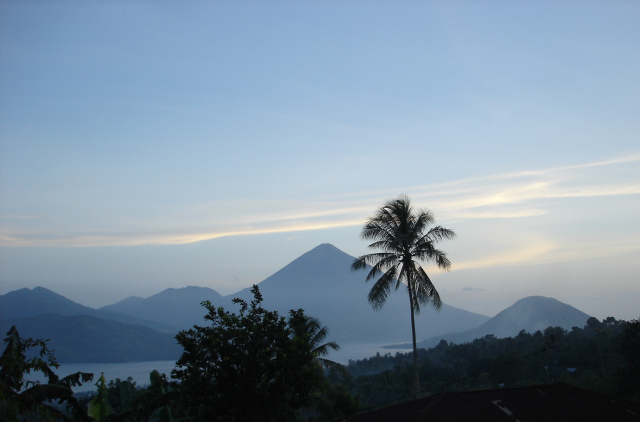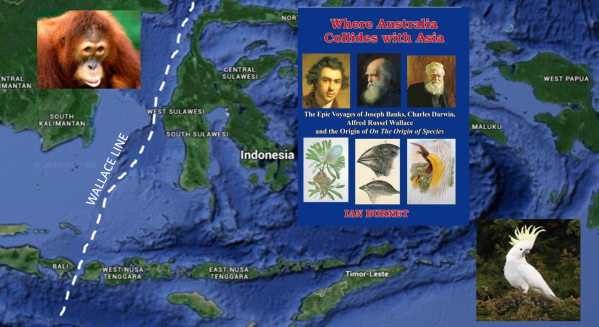From January 1858, Alfred Russel Wallace made the Dutch controlled island of Ternate his principle residence and base for the next three years, while he embarked on collecting natural history specimens around the adjacent islands and as far east as Papua. He describes how a deep well provided him with pure cold water and how he had regular supplies of fish, eggs, meat and vegetables, which were often sorely needed to restore his health and energy after his expeditions.

Ternate is the northernmost of the string of volcanic islands lying to the west of the main island of Halmahera. The image shows the volcano and the clove trees the Dutch fort was built to protect.
It was while collecting on the adjacent large island of Gilolo or Halmahera that Wallace fell sick with recurring malaria. In this semi-delirious state, ideas would flash before him and then disappear. The question of the origin of species was always on his mind and it was the writing of Thomas Malthus that provided an important breakthrough:
Something led me to think of Malthus’s essay on population and ‘positive checks’ – war, disease, famine, accidents etc. – which he adduced as keeping all savage populations nearly stationary. It then occured to me that these checks must also act upon animals … there suddenly flashed upon me the idea of the survival of the fittest – that the individuals removed by these checks must be, on the whole, inferior to those that survived.

A view of the ‘Spice Islands’ from Ternate (Ian Burnet)
Returning to Ternate he began writing is famous paper entitled ‘On the Tendency of Varieties to Depart Indefinitely from the Original Type’. He remembered the letter he had received from Charles Darwin related to his studies on how species and varieties differed from each other. Surely this was the breakthrough Darwin was looking for and Wallace put pen to paper:
The same evening I did this pretty fully, and on two succeeding evenings wrote it out carefully in order to send it to Darwin by the next post, which would leave in a day or two … I said I hoped the idea would be as new to him as it was to me, and that it would supply the missing factor to explain the origin of species.
Would Wallace’s idea be as new to Darwin as it was to him? Wallace knew that it would take three to four months for his letter to reach Darwin and around the same time to recieve a response. There was no point in him hanging around Ternate and, besides, there was the large island of Papua New Guinea to explore.

A painting of Wallace on the island of Waigeo, off the coast of Papua New Guinea

Where Australia Collides with Asia – The Epic Voyages of Joseph Banks, Charles Darwin, Alfred Russel Wallace and the Origin of ‘On the Origin of Species’
http://www.ianburnetbooks.com
Advertisements Share this:
- More





